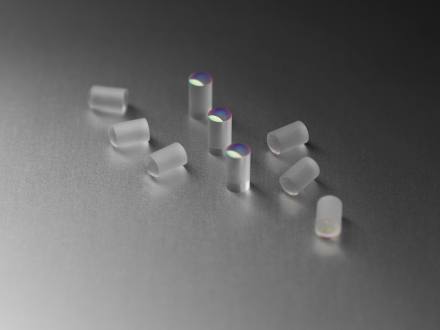Fiber Optic Collimation C-Lenses will be Exhibited by FISBA at OFC 2017

FISBA is showcasing high precision C-Lenses at OFC, The Optical Networking and Communication Conference & Exhibition. FISBA C-Lenses offer high precision with a flexibility in custom design.
In business standards of dia. 1.25mm and 2mm the C-Lenses are adapted to an ideal and reliable performance in optical expansion. A variety of coating options are available, beside the 1330nm and 1550nm bands for datacom.
Their tight centricity and diameter tolerances make them a go-to solution in the field of fiber optic connectivity. With a standard lateral decenter of less than 0.3 µm (high precision <0.1 µm), FISBA C-Lenses are unbeaten reaching transmission loss of less than 0.2 dB.
FISBA is leading the industry’s best performance of C-Lenses from insertion loss and return loss, and extreme durability in harsh application environments such as geophysical exploration, military communications, industrial data transmission and video broadcasting.
The complete design and manufacturing process takes place at FISBA’s state-of-the-art facilities, which enable a fast ramp up on demand. Once produced, the lenses are easily replicated even in high volume for serial production.
Discover more by visiting FISBA at OFC Booth 2862.
About FISBA
FISBA is a worldwide leading supplier of customized optical components, systems and microsystems. Since 1957, it has been a company priority to stay progressive without losing sight of the values on which we were founded. This mindset has enabled FISBA to become one of the most innovative suppliers in the optics industry, as well as a trusted partner to our customers. FISBA operates at facilities in Switzerland, Germany and the USA.
Learn more at www.fisba.com
Media Contact
Birgit Rauch, Head of Marketing Communication
Media Contact
All latest news from the category: Trade Fair News
Newest articles

First-of-its-kind study uses remote sensing to monitor plastic debris in rivers and lakes
Remote sensing creates a cost-effective solution to monitoring plastic pollution. A first-of-its-kind study from researchers at the University of Minnesota Twin Cities shows how remote sensing can help monitor and…

Laser-based artificial neuron mimics nerve cell functions at lightning speed
With a processing speed a billion times faster than nature, chip-based laser neuron could help advance AI tasks such as pattern recognition and sequence prediction. Researchers have developed a laser-based…

Optimising the processing of plastic waste
Just one look in the yellow bin reveals a colourful jumble of different types of plastic. However, the purer and more uniform plastic waste is, the easier it is to…



